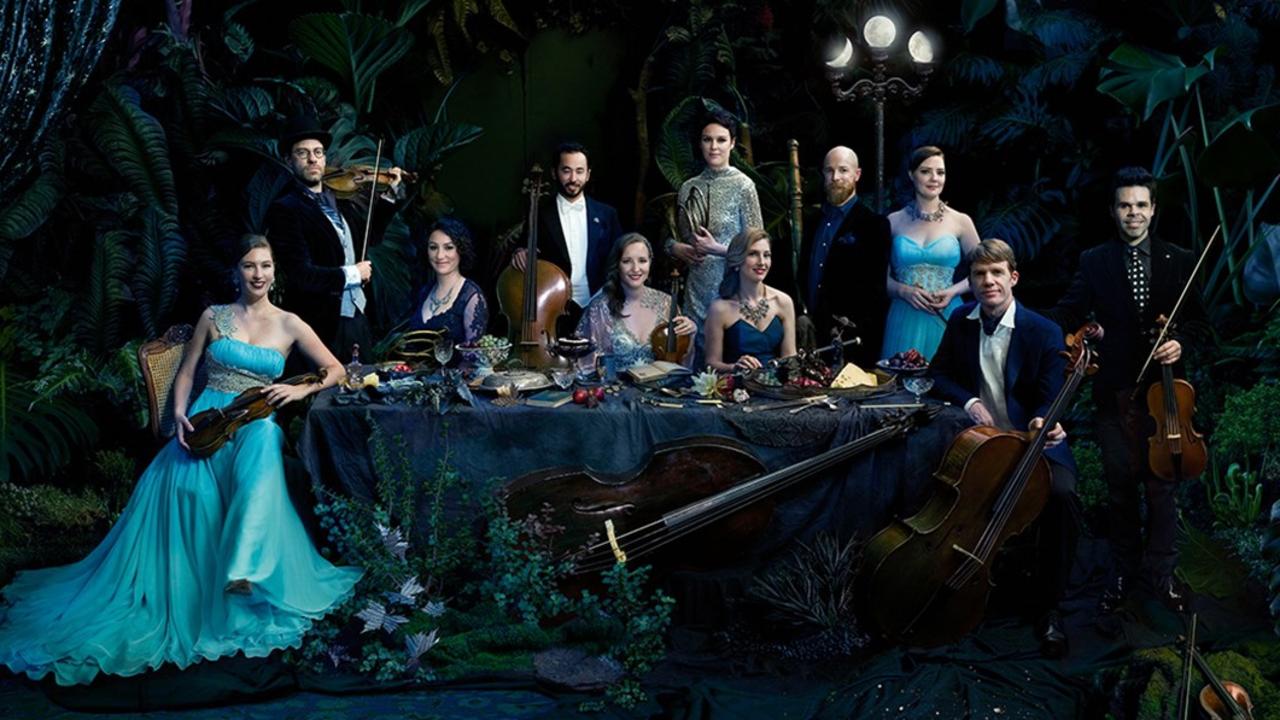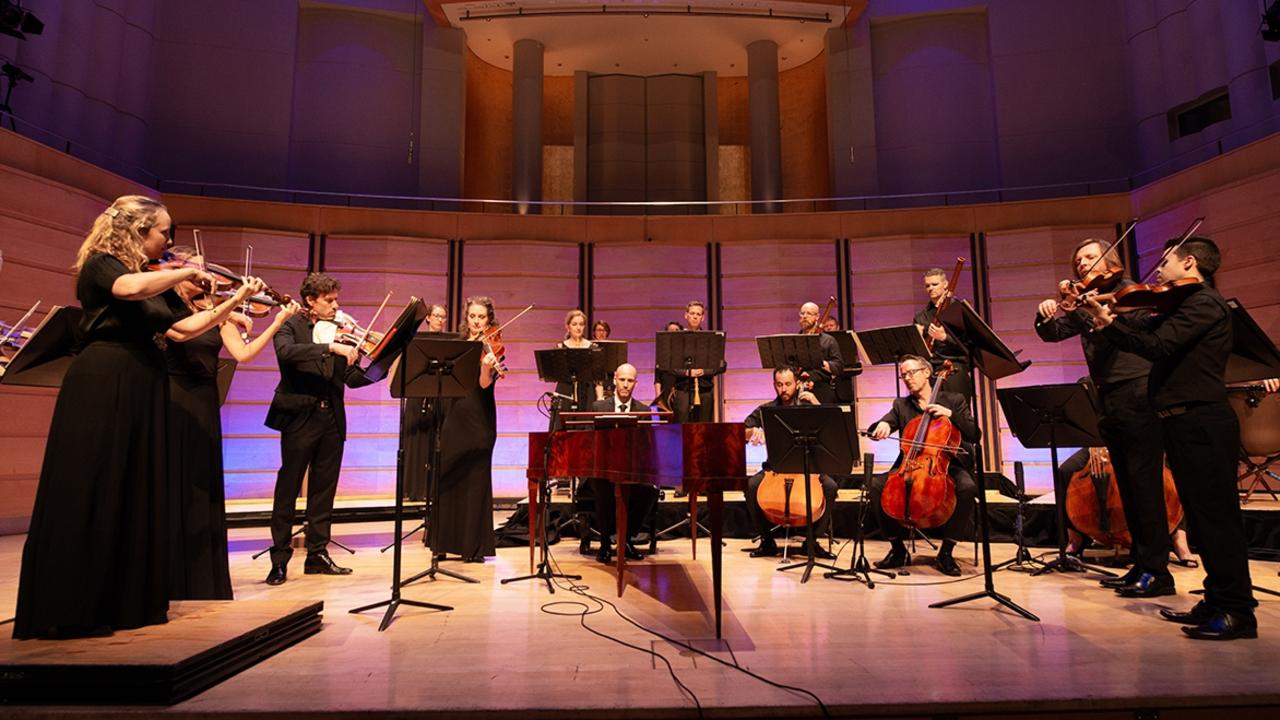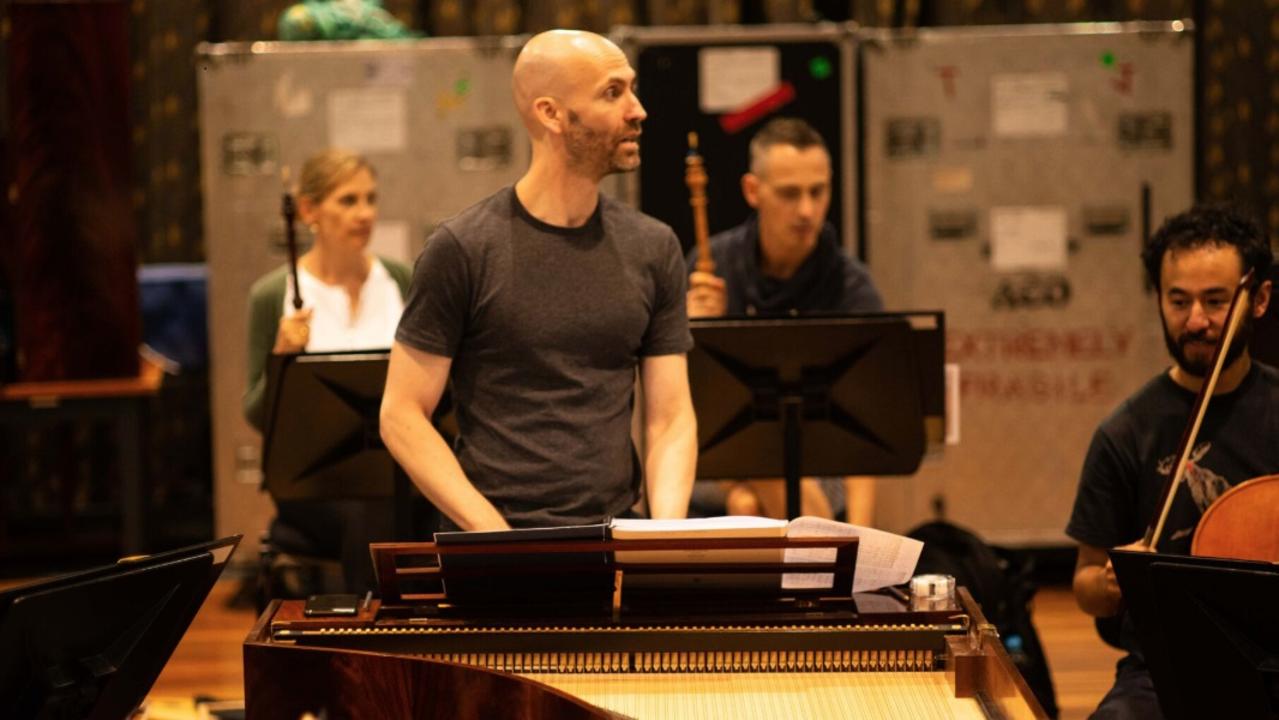Haydn’s Solar Poetics: Morning, Noon & Night | Adelaide Festival 2022 review
This is the kind of programming that festivals exist for, held together in a unifying concept that requires considerable stamina.

Adelaide Festival
Don't miss out on the headlines from Adelaide Festival. Followed categories will be added to My News.
Haydn’s Solar Poetics: Morning, Noon & Night
Classical Music – Australia
ADELAIDE FESTIVAL
Adelaide Town Hall, March 5
PROGRAM 1: MORNING
Ten o’clock in the morning is an early start for a concert, especially if you have been Festival partying the night before.
The audience was evidently undeterred – maybe they are an abstemious crowd – and were richly rewarded by this first concert built around Haydn’s trilogy of symphonies, Morning, Noon and Night.
This is the kind of programming that festivals exist for, held together in a unifying concept that requires a considerable amount of stamina from both performers and audiences. Ordinary programming for run-of-the-mill concerts is all too often a random assortment.
In this series we were offered a carefully curated selection that offered, in addition to the symphonies, a trilogy of Haydn’s harpsichord concertos, a selection of juvenile works by Mozart, and three fine Sinfonias by the underappreciated C.P.E. Bach.
The first concert in the series, Morning, began with C.P.E. Bach’s Sinfonia in E minor, a grumpy storm-and-stress work which, if it had anything to do with morning, was evidently Monday morning.
Bach’s music is often called pre-Classical, a product of historical hindsight – Bach would not have considered himself “pre” anything. This performance illuminated the striking originality of his music.
Erin Helyard directed the Australian Haydn Ensemble from the keyboard – and a splendid keyboard it was, a Kirckman from 1775 beautifully restored by Carey Beebe.
Following Mozart’s first composition K.1 for keyboard, Helyard was the soloist in Haydn’s Concerto in G, a sparkling work in which he gave ample evidence of his dexterity and imagination.
At the end came Haydn’s Morning Symphony, a surprisingly upbeat work played with admirable vitality by the ensemble.

PROGRAM 2: NOON
Haydn is a favourite composer of many musicians. I’ve met professional musicians who dislike Mozart, Beethoven, you name it, but I’ve never met anyone who hated Haydn.
You only have to watch the faces of the players in the Australian Haydn Ensemble to understand why – much of the time they are smiling.
The music has such unforced warmth, humour and vivacity – it is unpretentious, it never beats you about the head with its intellectuality, and it feels so human.
Haydn can be serious, tragic even, but not for too long.
These qualities were abundantly evident in Haydn’s Noon Symphony, a delightful work in which Haydn is careful to give key players in the orchestra solo spots in which they can shine – evidence that Haydn, in addition to his musical genius, knew how to deal with people.
When it came to his wife though, it was another matter entirely.
The symphony gave ample opportunity to appreciate the fine quality of players across the ensemble, including artistic director and violinist Skye McIntosh, from the excellent woodwind section, to the fine and at times splendidly raucous horns and the unusual violone, a bass instrument that belongs to the viol, not the violin, family.
Another strikingly original Sinfonia by C.P.E. Bach opened the concert. Erin Helyard gave us some more of Mozart’s juvenilia, and was once again a superb soloist in Haydn’s sparkling Concerto in F major.
As this series progresses we get more and more insight into the unique genius of the most loveable of composers, Joseph Haydn.

PROGRAM 3: NIGHT
For anyone seeking Haydn, or seeking to hide from depressing reality, the three concerts of Haydn’s Solar Poetics were the perfect answer.
The final concert in this trilogy included the last and best known of Haydn’s keyboard concertos, and the only one that is regularly played on the piano, the Concerto in D major.
The power and brilliance of the Kirckman harpsichord certainly helped keep attention on the solo instrument, although no harpsichord could assert itself against even a modest-sized orchestra in the way a modern piano can.
Erin Helyard as the soloist gave a captivating display of agility and elegant high spirits, especially in the riotous Hungarian finale.
Another Sinfonia by C.P.E Bach was a further opportunity to reflect on the talent of Johann Sebastian Bach’s youngest son, who is probably condemned to live permanently in his father’s shadow but has so much to offer himself, a great musical innovator, an 18th century avant-gardist.
The 16-year old Mozart had made huge strides since the early works we heard in the first two concerts, as the Divertimento in F shows. For all its charm it is not on the level of Haydn and Bach, but it’s still Mozart so it can’t be bad.
The third instalment in Haydn’s symphonic trilogy, Evening, is a fine early example of Haydn’s transcendental musical wit, as the composer plays around with his themes, with musical forms and audience expectations.
It was another example of fine playing by the Australian Haydn Ensemble, under the direction of Helyard. This group has set a new benchmark in Australia in the performance of music of the Classical era. Haydn seekers have much to be grateful for.



